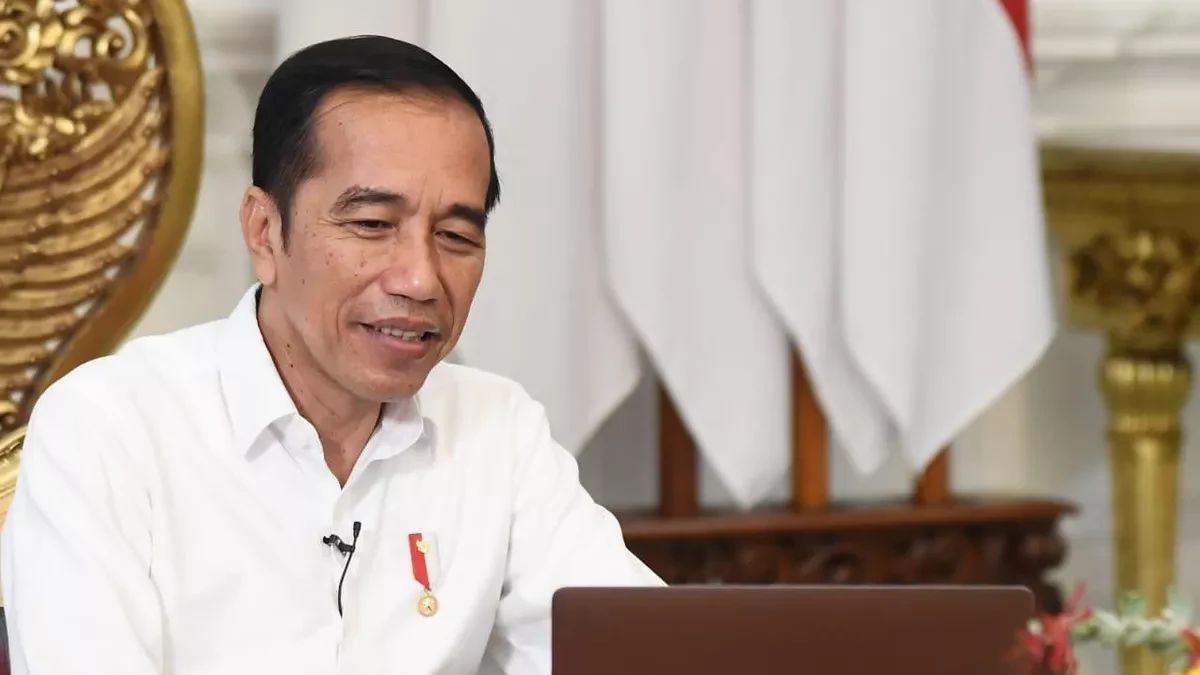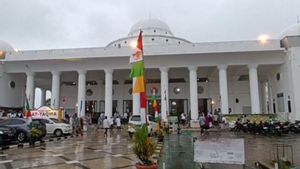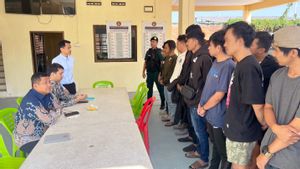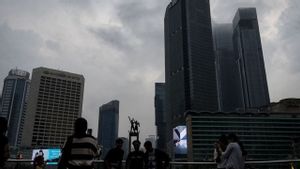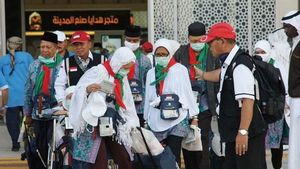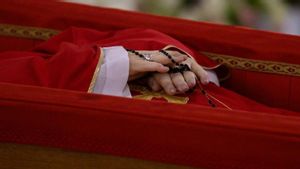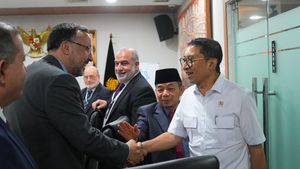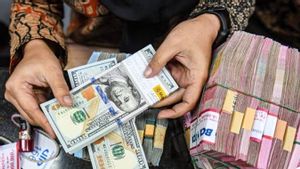JAKARTA - President Joko Widodo asked the public to ask RT and RW and village heads if they had not received social assistance from the government in the midst of the COVID-19 pandemic.
"I hope the community will also continue to ask their RT and RW or village heads," said Jokowi in a press statement broadcast on the Presidential Secretariat YouTube account, Saturday, May 16.
The former Governor of DKI Jakarta also emphasized to the Coordinating Minister for Human Development and Culture (Menko PMK), the Minister of Social Affairs, and the Minister for Villages, Disadvantaged Areas and Transmigration (Mendes PDTT) to accelerate the process of distributing village cash transfers (BLT) or cash social assistance. by cutting the cumbersome bureaucracy.
"Accelerate the process of distributing village BLT and cash assistance by simplifying the procedure by cutting the procedure so that the community immediately receives this social assistance, be it Village BLT or cash assistance," he explained.
Moreover, until now, said Jokowi, the direct cash assistance has not been entirely delivered to people who need it. For village BLT, which was taken from village funds, only 15 percent had been distributed.
"This means that there are still 85 percent that have not been received by the public. Then for BST (cash social assistance) this is also more or less, from the information I received only about 25 percent has been received by the public. So there are still 75 percent that have not been received," he said. .
So, this acceleration is important to do. Because, in the field, said Jokowi, he saw many people complaining about not getting village cash assistance (BLT) and cash assistance in the midst of this pandemic.
It is known, in the midst of the current pandemic, the government is providing assistance to the affected communities. Some of the assistance is in the form of cash social assistance of Rp. 600 thousand which will be given for three consecutive months. Likewise with village cash transfers (BLT).
In addition, there is also assistance for electricity ripping for 450va customers and a 50 percent discount for customers who use subsidized 900va electricity.
Furthermore, the government also provided basic food card assistance for 20 million recipients and the Family Hope Program (PKH) which was given to 10 million families.
There are still weaknesses in providing social assistanceThe Director General of Budget at the Ministry of Finance Askolani admits that there are still weaknesses in the distribution of social assistance in the midst of the corona virus pandemic or COVID-19. He said, there are social assistance programs that are not on target and there is even duplication in providing assistance.
However, he considered, it would be better for the duplication of gifts that occurred than for the community not to get social assistance at all in the midst of this pandemic.
"The government is of the opinion that there is better duplication than people who should not receive social assistance," Askolani said in a press conference broadcast on BNPB's YouTube account, Friday, May 15.
The government realizes there are gaps in the distribution of social assistance at an early stage. So, said Askolani, the central and local governments made a number of improvements, including improving data on aid recipients
"Weaknesses in data that occurred in the early stages continue to be improved. Coordination of the central and regional governments is the key to improving data," he said.
Other ministries related to the distribution of social assistance have also touched on this weakness. One of them is the Ministry of Social Affairs. Social Minister Juliari Batubara said, under abnormal conditions like today, the government must move quickly to meet people's needs. However, he admitted, the data collection of potential beneficiaries was not yet fully targeted.
"I even said, I prefer (social assistance to go down) quickly now rather than right. Why? If it is not correct it can be resolved and I can prove it myself. Instead of being busy verifying, re-validating data to ensure that the target of COVID-19 has been completed, the new social assistance down, "he said in a working meeting with Commission VIII together with the Minister of Pembangungan Rural Areas and Transmigration virtually, Wednesday, May 6.
According to him, in the midst of current conditions, the Ministry of Social Affairs must choose one. So, the decision to be taken is to distribute social assistance quickly, so that the community can be immediately helped.
"Neither can be both very fast and very precise. I think it is impossible. We are not a country that has sophisticated data infrastructure," he said.
Meanwhile, Finance Minister Sri Mulyani admitted that there were overlapping targets in the distribution of social assistance funds in a number of programs run by the government to support the poor affected by the pandemic.
However, according to Sri, it was much better than if they did not get any support in difficult times like today.
"Many are asking whether there will be an overlap? The possibility exists. But it is probably better, than not," he said, during a virtual press conference in Jakarta, Friday, May 8.
Furthermore, Sri Mulyani said that currently the government has distributed social assistance to the Jabodetabek and non-Jabodetabek communities amounting to 55 percent of the total Indonesian population.
"We have covered more than close to 55 to 59 percent of the Indonesian population getting Social Assistance. Either in the form of groceries or BLT or on the basic food cards," he said.
The English, Chinese, Japanese, Arabic, and French versions are automatically generated by the AI. So there may still be inaccuracies in translating, please always see Indonesian as our main language. (system supported by DigitalSiber.id)
